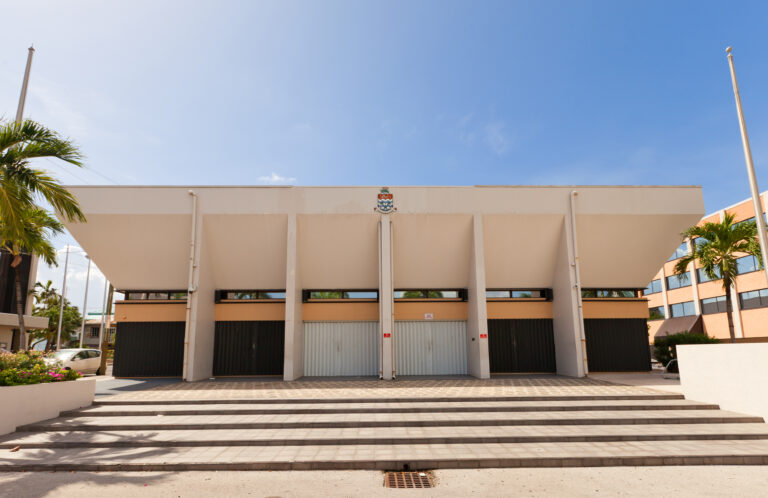
In a recent judgment of Chief Justice Margaret Ramsay-Hale, the Grand Court confirmed again the Cayman Islands’ availability as a jurisdiction for the enforcement of foreign arbitral awards. The case also confirmed: a) the narrow scope of the public policy exception for refusing enforcement of an award; b) the Court’s unwillingness to relitigate the arguments that have been decided by the relevant arbitration; and c) the open justice principle in favour of award enforcement proceedings generally being conducted in public.
The case arose in the wider context of the collapse of the Abraaj group. The plaintiff in the Cayman proceedings, ‘WCL’, is a limited partner in one of the Abraaj funds (Fund). WCL had obtained an LCIA arbitration award (LCIA Award) that the GP of the Fund provide access to books and records of the Fund, both as a result of its contractual entitlement through the relevant limited partnership deed and as a result of its statutory rights under the Exempted Limited Partnership Act.
In accordance with the usual procedure for the enforcement of arbitral awards contained in the Foreign Arbitral Awards Enforcement Act (1997 Revision) (FAAEA), WCL made an ex parte application for leave to enforce the LCIA Award. The enforcement order sought was granted (Enforcement Order) and the GP made an application seeking: discharge of the Enforcement Order; an injunction with various confidentiality protections in respect of information to it pursuant to the Enforcement Order; or in the alternative, variation of the Enforcement Order so that enforcement of the LCIA Award would be conditional upon the provision of undertakings by WCL.
Narrow public policy exception
Section 7 of the FAAEA sets out the limited cases in which enforcement of foreign arbitral awards is to be refused in the Cayman Islands. These limited cases include cases where enforcement would be contrary to public policy.
The GP’s position was essentially that it believed that confidential information provided pursuant to the Enforcement Order would be passed to third parties in breach of WSL’s confidentiality obligations under the limited partnership deed. The Judgment summarised the GP’s overarching submission as being that it would therefore be unjust – and therefore contrary to public policy – to require the GP to comply with the Enforcement Order without the protections sought. In support of its position, the GP referred to the English case of Payward v Chechetkin [2023] EWHC 1780 (Comm). In that case, enforcement of an arbitral award was refused where enforcement would circumvent statutory consumer rights.
The Court referred to the strong public policy imperative in favour of the enforcement of arbitral awards and stated that the public policy exception should therefore be construed narrowly. The Court noted that the Payward v Chechetkin case was a “rare instance” which in fact highlighted the exceptionality of the circumstances in which the public policy exception would apply and that the current case was a “mile apart”. The Court therefore found that enforcing the LCIA Award would not be contrary to public policy.
Issues previously raised in arbitration
The Court’s approach to enforcement and to the protections sought by the GP was informed by the fact that the same confidentiality arguments had been made by the GP during the arbitration. The Court stated that it was not open to the GP to seek to relitigate before the Court a matter which: a) fell within the parties’ arbitration agreement; and b) had already been decided during the arbitration. The Court found that, by raising the confidentiality issues, the GP was in effect seeking to make an addendum to the LCIA Award, whilst the Court’s jurisdiction pursuant to the FAAEA is limited to enforcing an award (section 5) or refusing its enforcement (section 7).
Application to hear enforcement proceedings in private
The GP also made an application for the enforcement proceedings to be heard in private. The confidentiality protections which generally apply to arbitrations mean that confidentiality issues often arise during the enforcement of arbitral awards. The GP referred to a number of English authorities which make clear the Court’s discretion to hear arbitral enforcement proceedings in private.
The Court recognised that these authorities were powerful, but nevertheless found that the general position is that arbitral award enforcement proceedings will be conducted in public due to the open justice principle.
Takeaways
Those dealing with the enforcement of arbitral awards should note the following takeaways:
1. The Cayman Islands is firmly available as a jurisdiction for the enforcement of foreign arbitral awards.
2. The public policy imperative in favour of award enforcement means that the public policy exception to enforcement is narrowly construed.
3. The Cayman Court will be alive to attempts within enforcement proceedings to relitigate issues which have been dealt with during the underlying arbitration.
Notwithstanding the confidentiality protections which apply to arbitration and powerful authorities showing the discretion of the Court to hear enforcement proceedings in private, the general position is that award enforcement proceedings will be conducted in public.

David Lee is a partner and member of the Cayman Dispute Resolution department at Appleby.

Zuhair Farouki is an associate in Appleby’s Dispute Resolution Practice Group in the Cayman Islands.


